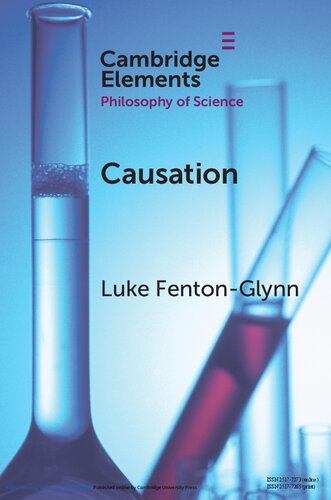

Most ebook files are in PDF format, so you can easily read them using various software such as Foxit Reader or directly on the Google Chrome browser.
Some ebook files are released by publishers in other formats such as .awz, .mobi, .epub, .fb2, etc. You may need to install specific software to read these formats on mobile/PC, such as Calibre.
Please read the tutorial at this link: https://ebookbell.com/faq
We offer FREE conversion to the popular formats you request; however, this may take some time. Therefore, right after payment, please email us, and we will try to provide the service as quickly as possible.
For some exceptional file formats or broken links (if any), please refrain from opening any disputes. Instead, email us first, and we will try to assist within a maximum of 6 hours.
EbookBell Team

0.0
0 reviewsThis Element provides an accessible introduction to the contemporary philosophy of causation. It introduces the reader to central concepts and distinctions (type vs token causation, probabilistic vs deterministic causation, difference-making, interventions, overdetermination, pre-emption) and to key tools (structural equations, graphs, probabilistic causal models) drawn upon in the contemporary debate.
The aim is to fuel the reader's interest in causation, and to equip them with the resources to contribute to the debate themselves. The discussion is historically informed and outward-looking. 'Historically informed' in that concise accounts of key historical contributions to the understanding of causation set the stage for an examination of the latest research. 'Outward looking' in that illustrations are provided of how the philosophy of causation relates to issues in the sciences, law, and elsewhere.
The aim is to show why the study of causation is of critical importance, besides being fascinating in its own right.